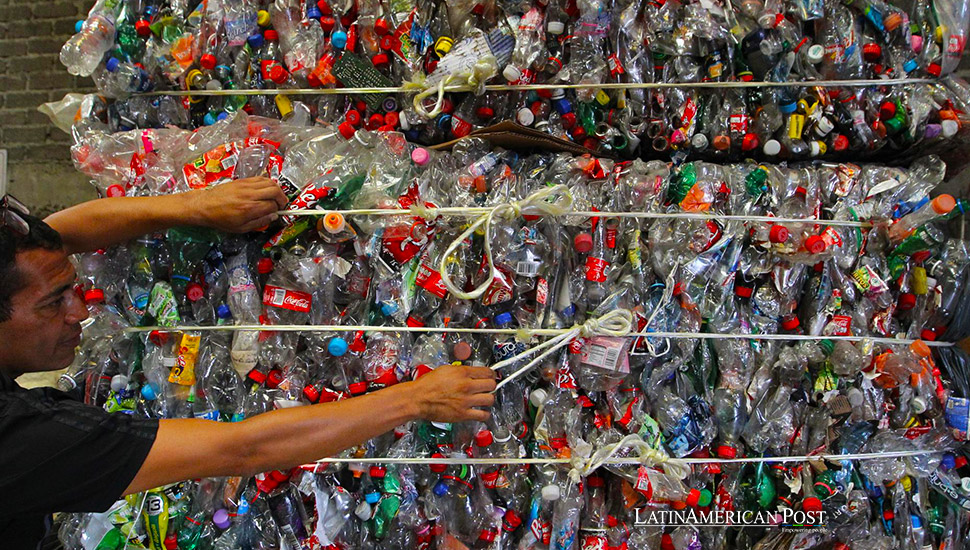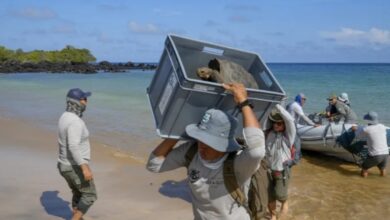Revolutionary Technological Investment Boosts Ecuador’s Circular Economy

A $15 million investment has established a transformative plant in Ecuador, significantly enhancing the circular economy and benefiting thousands of recyclers, as announced by Grupo Mario Bravo (GMB).
Grupo Mario Bravo (GMB), a pioneer in waste transformation since 1970, recently announced a substantial $15 million investment in a state-of-the-art PET plastic transformation plant in Guayaquil, Ecuador. This initiative, led by their subsidiary Reciplásticos, aims to advance the circular economy and support the livelihoods of thousands of recyclers in the region. The new industrial line will boost PET recycling capacity and reinforce GMB’s commitment to sustainability and environmental stewardship.
Equipped with cutting-edge Austrian technology, the plant meets all required standards for converting recovered plastics into food-grade pellets. This technological upgrade represents a significant leap in efficiency and quality for GMB, reducing the reliance on virgin raw materials and fostering material reuse within the production chain. Roland Bravo, President of Reciplásticos, highlighted the company’s dedication to leading the shift towards a more sustainable world through purposeful and inclusive industry practices.
Cutting-Edge Technology for a Sustainable Future
The newly established plant in Guayaquil showcases advanced technology capable of producing food-grade plastic pellets, ensuring that recycled plastics meet stringent safety and quality standards for use in food and beverage packaging. The recycling process involves collecting, washing, grinding, and pelletizing PET bottles, guaranteeing that the recycled material is contaminant-free and suitable for food contact.
GMB enhances its ability to promote the circular economy by implementing this advanced technology. The production of food-grade pellets enables the continuous reuse of plastics, significantly reducing environmental impact and promoting sustainability. This initiative aligns with global trends in sustainable development and positions Ecuador as a leader in innovative recycling solutions.
Patricia Caiche, a micro-entrepreneur in recycling, emphasized the importance of public involvement in recycling efforts. “I invite citizens, authorities, and everyone to participate in recycling. Many materials that are not being utilized could be the livelihood for many families,” she said. The plant’s capacity to process up to 3.5 million bottles daily, equivalent to 900 million bottles annually, underscores its potential to positively impact waste management, employment, and the local economy.
Economic and Social Impact
Establishing the new plant directly benefits over 15,000 recyclers, improving their working and economic conditions and ensuring a fair and efficient recycling chain. GMB’s efforts to transform and reevaluate waste materials have made significant strides in environmental conservation and economic stimulation. To date, GMB has recycled over 11 billion PET bottles, processed 7.2 million kilograms of high and low-density polyethylene through Proceplas, managed 19.2 million kilograms of metallic waste via Recynter, and recycled 20 million kilograms of paper and cardboard annually with Fibras Nacionales.
Reciplásticos, a key player in GMB’s portfolio, recycles more than 30,000 tons of PET plastic annually, enough to fill approximately 6.44 Olympic-sized swimming pools. This massive recycling effort mitigates environmental damage, creates numerous job opportunities, and supports the local economy. Integrating advanced technology in the recycling process exemplifies GMB’s commitment to innovation and sustainable development.
Promoting a Circular Economy
Food-grade plastic pellets are crucial for fostering a circular economy within the recycling chain. This approach reduces the dependence on virgin raw materials, lowers environmental impact, and promotes sustainability. The new plant’s ability to process millions of bottles daily ensures that significant quantities of plastic waste are effectively managed and reintroduced into the production cycle.
GMB’s initiatives reflect a broader trend towards sustainability and circular economies worldwide. By investing in advanced recycling technologies and processes, the company sets a precedent for other organizations in the region and beyond. The positive environmental and economic impacts of GMB’s efforts highlight the importance of innovative solutions in addressing global waste management challenges.
The company’s dedication to sustainability extends beyond recycling efforts. GMB actively engages with local communities, providing education and resources to promote environmental awareness and encourage participation in recycling programs. This holistic approach ensures that sustainability is integral to community development and economic growth.
Also read: Peru and Ecuador Unite Against Crime and Discuss Oil Opportunities
Grupo Mario Bravo’s $15 million investment in a PET plastic transformation plant in Guayaquil marks a significant milestone in Ecuador’s journey towards a sustainable and circular economy. The integration of cutting-edge technology and the company’s commitment to environmental stewardship position GMB as a leader in innovative recycling solutions. The positive impact on the local economy, employment, and environmental conservation underscores the transformative potential of advanced recycling technologies in fostering a sustainable future.




